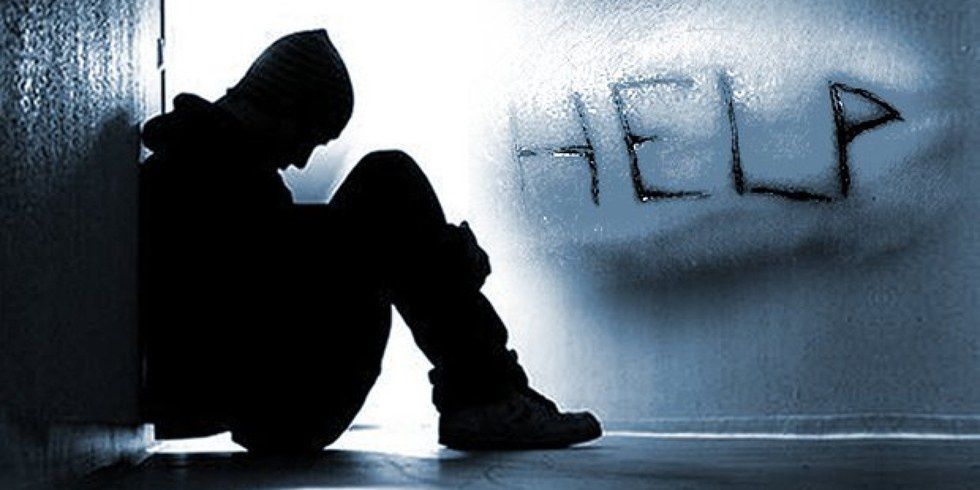The mainstream media gets a lot of criticism these days. They're constantly being accused of being dishonest, and, especially with the election of Donald Trump, the most outspoken enemy the media has ever had, it might be reasonable to say that the attacks against the media have only begun. Yet, those on the left-wing side also have their own criticisms for the media. They liken the media to an enormous curtain made of meaningless, distracting news stories that stand in front of real issues. For example, Hillary Clinton's email scandal was seen as receiving more attention than it deserved, in order to cover up some of Donald Trump's controversies. I think the Democrats are onto something here. While I personally don't agree with that exact accusation, I do believe that the media, however unintentionally, gives too much attention to less-relevant, ratings-garnering news stories instead of lifting the veil off of some of the world's more unpopular, yet pressing issues. Here are five issues that I never see the media discuss.
1. The Antibiotic Crisis
The world's reliance on antibiotic drugs is only getting tighter, yet, antibiotic drugs are getting weaker in the fight against pathogens. It's a simple application of the concept of evolution; the bacteria that antibiotics fight are slowly adapting to the environments that are supposed to kill them. This is making antibiotics less effective, and, eventually, they may become useless.
Antibiotics have prevented the deaths of millions of people throughout the years, and the danger they are in cannot be ignored. In fact, the CDC estimates that at least 23,000 people die every year from infections caused by bacteria that was able to resist the effects of antibiotics. So, what is the answer? Should we put more taxpayer money into medical research in order to either find new antibiotics or make the current ones more invincible? What will happen if this doesn't happen, and the bacteria are able to flourish?
2. Hazing
Every semester, thousands of college freshmen looking for acceptance and friendships are lured into fraternities through rush events where they are promised unlimited alcohol, girls, and fun times. Then, once they become pledges, their need for acceptance is challenged in what often becomes twelve weeks of pure hell, leaving pledges physically, mentally, and emotionally damaged. Movies they may have seen beforehand, like "Animal House," greatly undershot the extreme nature of the pledging process in some fraternities.
It is a staple in fraternities to deprive their pledges of sleep, and, while they are in their weakened, exhausted state, haze them until they're left as shells of their former selves. Pledges in some fraternities might be beaten, made to perform sexual acts, forced to eat disgusting concoctions of liquor, rotten food, bodily fluids, etc. This semester-long ritual (which is not limited to fraternities; sororities, sports teams, and academic clubs are often found hazing people, too) has left at least one college student in America dead from hazing each year since 1970. The logic is that it builds brotherhood within one's pledge class, and that it's only fair that they go through it because everyone else had gone through it. Fortunately, it does bring them together, whether or not they enjoy it. But, colleges across America are uniting and banning hazing from their campuses. Those who support the cause believe there are other ways to build brotherhood. Yes, challenging ways. They believe that membership in Greek life needs to be earned, but not at the expense of someone's health. Many fraternities across the country have already dropped hazing and reformed their pledging process into something that is still challenging, but isn't dangerous in any way. Despite this, hazing still exists within the underbelly of the Greek life system in America.
3. The Yemeni Civil War

The Yemeni Civil War is a struggle caused by former Yemeni President Ali Abdullah Saleh's forced resignation and replacement by Abdrabbuh Mansur Hadi in early 2015. Forces loyal to Saleh rebelled. These forces, along with a revolutionary group called the Houthis, successfully overthrew the government and imprisoned Hadi. Today, Saudi Arabia is involving itself by conducting military operations to bring Hadi's government back to power, and the U.S. is allied with Saudi Arabia in this fight. There are also areas of Yemen that are currently controlled by terrorist groups like Al-Qaeda and ISIS. Millions of Yemeni citizens have left the country in search of refuge and over 10,000 people have died in the past two years as a result of this war.
4. Sex Trafficking
The reality of sex trafficking is more horrific than anyone can imagine. According to equalitynow.org, over 20 million men, women, and children are bought in the black market every year. 98% of those involved in sex trafficking were women and girls. Over two million sex trafficking victims every year are children. Pedophiles and rapists really do have an entire market made out for them.
Ever heard of the "deep web?" It's the area of the Internet that cannot be traced and can only be accessed through certain softwares. Once someone is logged into the deep web- which constitutes the vast majority of the Internet's capacity- they are completely anonymous and can access any dark, sinister website they want and buy whatever they want without any risk of repercussion. This is where people can buy sex slaves, or watch child pornography or videos or sexual assault starring these victims. This is what allows these terrible businesses to be so successful. In fact, the child pornography industry is estimated to have an annual revenue over $3 billion. That's terrifying.
5. Suicide
The idea of being so depressed or feeling so helpless that one feels the only way out is to end their own life is nothing short of a disturbing thought. Unfortunately, according to mentalhealthamerica.org, this is the reality for over 500,000 Americans every year, 30,000 of whom end up dead. Suicide is also the second-highest cause of death among people aged 10-24. In order to stop this massive problem, we need to understand why people commit suicide.
30% to 70% of suicide victims suffer from depression or bipolar disorder. This can be caused by heredity, but it can also be brought on by a number of social factors. According to a study from Britain, half of youths who committed suicide were bullied. So, it can be said that there is a stark link between bullying, mental health issues, and suicide. Therefore, there are two obvious points to be made in order to fight suicide: children of all ages must be educated about the dangers of bullying, and more attention must be paid to the worldwide mental health crisis. If these two points are integrated into the fabric of society more than they already are, perhaps positive results can be seen.

























